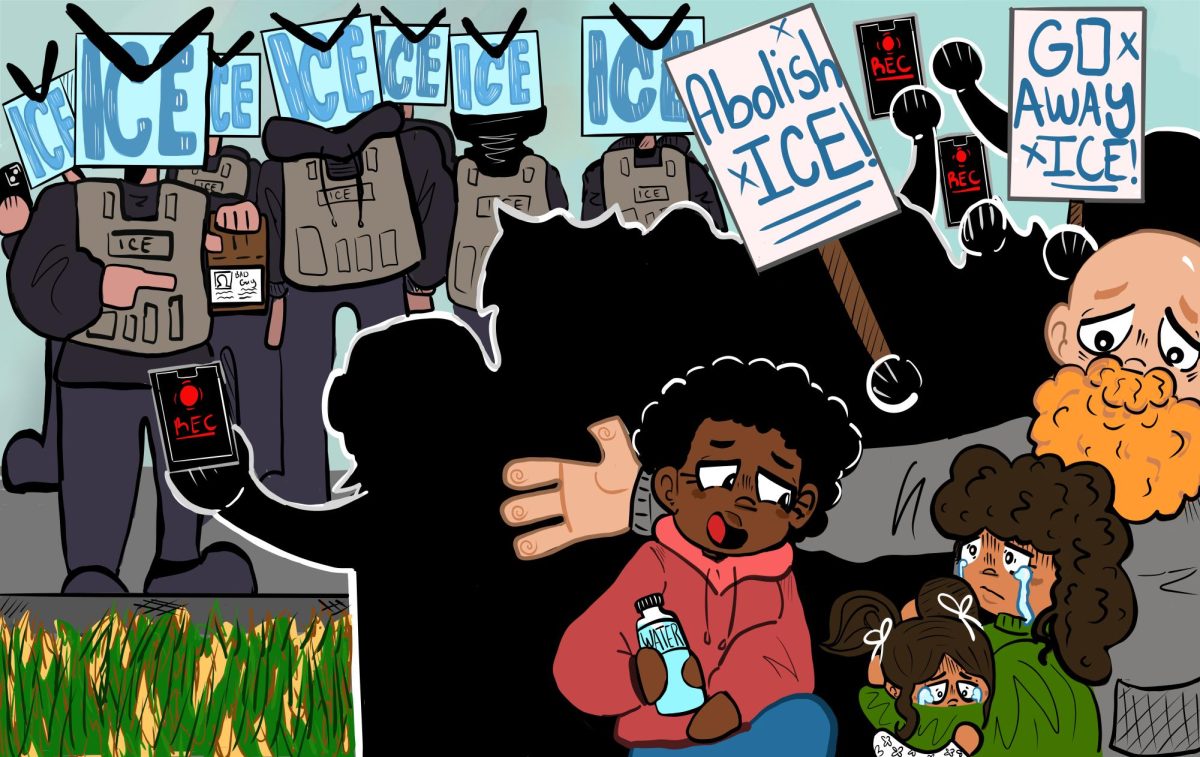By Leyla Oun/reporter
Understanding the difference between offensive language and inclusive language can promote a more positive experience at TCC, speakers told SE students Sept. 8.
Garrison Henderson, Rhonda Hudson and Vivian Lu of the SE Diversity and Inclusion Council presented information to educate students and faculty on the awareness of inclusive language and microaggressions.
“Diversity is something to be celebrated here on campus,” Hudson said. “How different groups of diversity experience TCCD is the focus here today. How can we improve what they experience?”
Hudson told students to be considerate of other students’ gender, race, ethnicity, religion, age, ability, sexual orientation, socioeconomic status, veteran status, linguistic heritage and cultural expression to avoid unknowingly offending them.
“Students should have the goal to promote and sustain a culture of inclusion where individuality and cultural humility is embraced and valued,” she said.
Hudson shared a video made independently by Harvard students dealing with the type of microaggressions the participants experienced daily as students at Harvard University. The students shared common sayings and phrases while detailing the impact the phrases had on the students’ lives and emotions. The video suggested that microaggressions expressed by students were sometimes done because of ignorance while others were done with malicious intent.
Being aware of what others consider to be offensive can eliminate those problems, Henderson said.
“Whether intentional or unintentional, anything that communicates hostile, derogatory or negative slights and insults towards a social group can be interpreted as backhanded communications,” he said.
Henderson and Hudson encouraged students attending the presentation to share any personal experiences involving microaggressions both on and off campus. They gave feedback to students and suggested responses to situations that could occur in the future to better educate the other person.
“If you Google ‘things not to say,’ you’ll come up with a bunch of things you never knew that you shouldn’t say before,” Lu said. “Before I took the required course on this, I had no idea that some of these things could offend people.”
Mason Hooser, SE student, said the examples of microaggressions completely shocked him.
“I feel like I’ve been offending people left and right,” he said. “I really hope I haven’t made anyone feel too bad. I guess I better be more careful of what I say because this is pretty ridiculous.”
SE student Shameeka Harris said she feels as if more presentations covering microaggressions are needed on campus because not too many students know when they are being truly offensive.
“Stuff like that happens every day,” she said. “People think that because I’m from Louisiana that I should be dying to cook for everyone or that I should talk a certain way. No, I shouldn’t. That’s none of their business — and it sucks that they think that it is.”





















